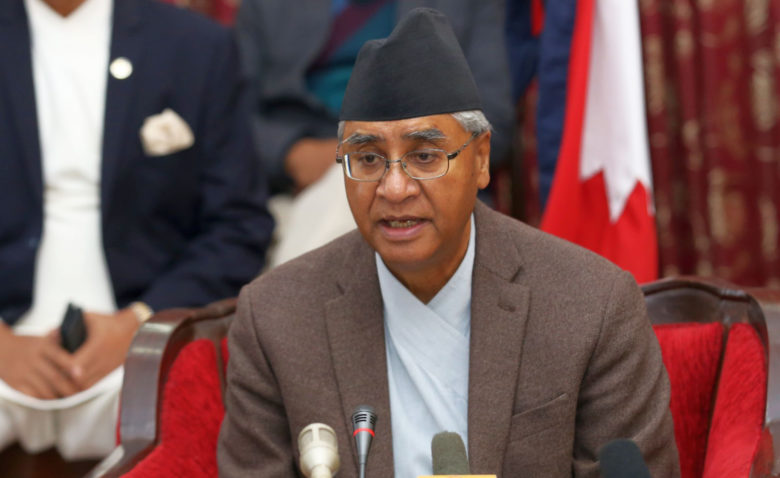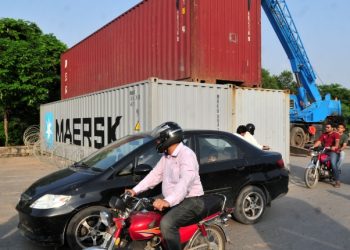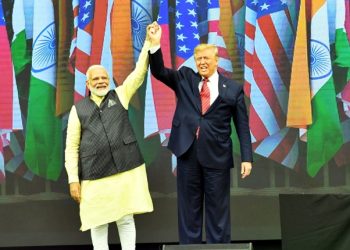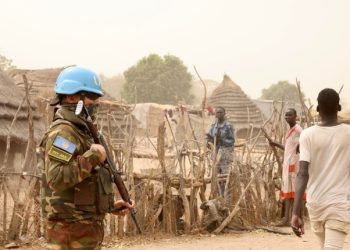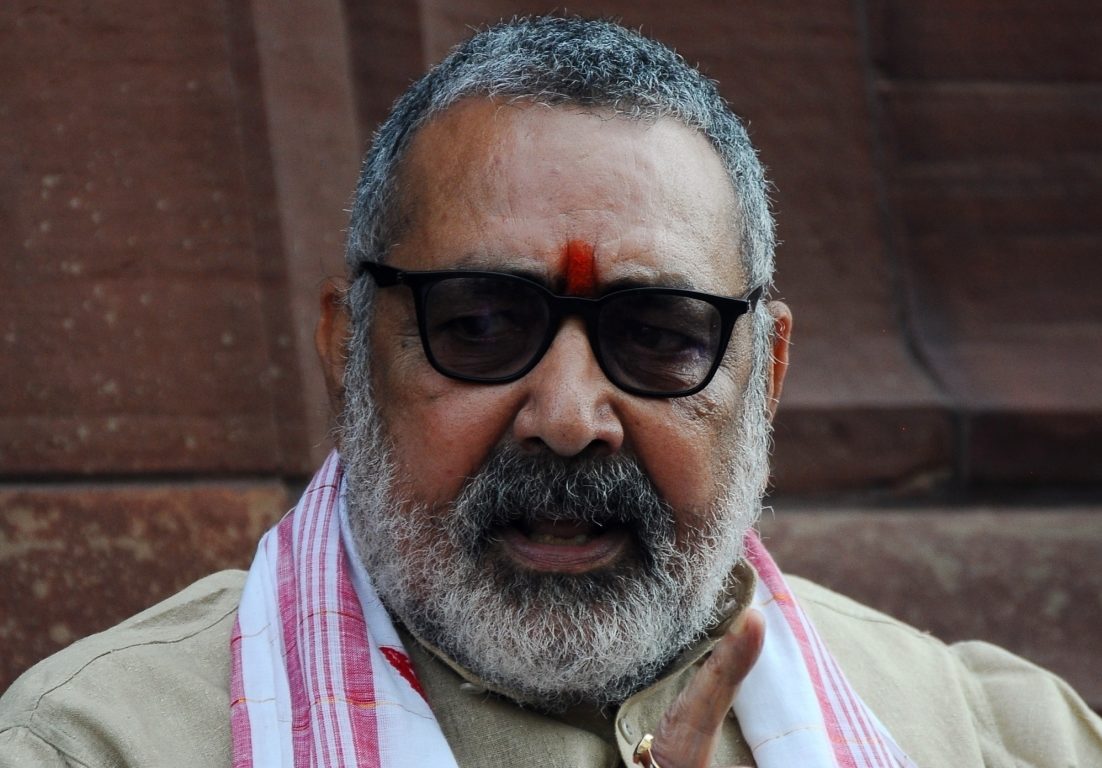New Delhi: Blood is thicker than water. The recent upswing in relations between India and Nepal goes to underscore the truth behind this old saying. India has been Nepal’s historical, spiritual and economic partners since ages. At the heart of this relation is extensive people-to-people contact between the two countries, with many of the former ruling elites of Nepal being of Rajput origin. Attempts by strangers from across the high Himalayas to throw spanners into this relationship is bound to fail, as recent developments confirm.
There is hardly any instance of the same level of co-operation between two sovereign countries as in the case of India and Nepal; an open border, allowing for free flow of goods, services, technology and people. Nepal needs India to get access to sea ports, to get its supplies of building materials, pharmaceuticals and other essentials. Patients from Nepal visit India for treatment and students from Nepal are enrolled in educational institutes in India.
The temporary setbacks in relations between India and Nepal are now a thing of the past, bilateral relations between Delhi and Kathmandu have been improving steadily since Nepali Congress leader Sher Bahadur Deuba took over as the Prime Minister of Nepal in July 2021. Deuba will be arriving in Delhi on April 1, 2022, on a three-day visit, his first foreign visit since taking over as the Prime Minister of the Himalayan country. It is expected that the visit will inject a new momentum to the bilateral ties, especially in areas of trade, investment, healthcare and connectivity.
The Prime Minister of Nepal is scheduled to have wide-ranging talks with Indian Prime Minister Narendra Modi on April 2. Deuba will also visit Varanasi, Modi’s parliamentary constituency. In fact, Deuba has agreed to visit India shortly after an invitation extended by Narendra Modi. A number of agreements are likely to be signed between Nepal and India during Deuba’s visit, including one on a cross-border railway which has been on the table for some time.
The Jaynagar – Kurtha cross border railway link, according to a Kathmandu Post report, will be the first modern railway service in Nepal. The 35-km long cross-border railway link will connect Jaynagar in Bihar with Kurtha in Nepal. Earlier, there was a narrow-gauge rail link from Janakpur in Nepal to Jaynagar that had served people from 1937 to January 2014. With this railway link between India and Nepal likely to be inaugurated by the two Prime Ministers, Modi and Deuba, Delhi is set to pip Beijing at the post in the race between the two countries to set up a cross-border railway link with Nepal.
Though the Standard Operating Procedure for the cross-border railway operation between India and Nepal was signed in October 2021, the service could not be introduced in the absence of a law in Nepal to govern railway operations. The Diesel Electric Multiple Unit trains are reported to be lying idle in Janakpur in Nepal. To circumvent the delay in passage of a law in the Parliament of Nepal, Kathmandu has now decided to reissue a railway ordinance for the operation of the shuttle train between Kurtha in Nepal and Jaynagar in India.
The Jaynagar – Kurtha section is in fact a part of the 69-km long Jaynagar – Bijalpura – Bardidas rail link that is being built under a grant assistance of the Indian government of NPR 8.77 billion. The cross-border rail link will increase trade and commerce and develop a people-to-people link between India and Nepal. The trains would pass through the historic city of Janakpur in Nepal.
People-to-people ties are the most important of the four layers of relationship between India and Nepal, noted intellectual from the hills and former vice chancellor of Sikkim University Mahendra P. Lama has said in a recent interview to National Herald, the other three being government-to-government, business-to-business relations and ties between the civil societies of the two countries. Changes in political systems and leadership in Nepal have failed to affect this people-to-people relationship which has stood the test of time. Even during the tenure of K.P. Sharma Oli-led Communist Party of Nepal (Unified Marxist Leninist) government in Nepal which was regarded as pro-China, these people-to-people contacts between Nepal and India have remained unaffected.
Among the other issues likely to figure in discussions during Sher Bahadur Deuba’s visit to Delhi is the signing of a Memorandum of Understanding on rebuilding around 137 health posts with financial assistance that New Delhi had announced in the aftermath of the earthquake of 2015, it is learnt.
Overall, Sher Bahadur Deuba’s visit is likely to give an opportunity to both India and Nepal to review the entire spectrum of bilateral relations, including development and economic partnership, trade, co-operation in the health sector, power, connectivity and people-to-people links, it is believed. Ties were strained between the two countries during the tenure of the Sharma Oli government when in 2020 Nepal published a new political map that showed three Indian territories — Limpiyadhura, Kalapani and Lipulekh — as part of Nepal.
Kathmandu also favours a review of the Indo – Nepal Treaty of 1950, to make its provisions more contemporary. As Mahendra P. Lama has pointed out, one of the archaic provisions of the treaty is that Nepal must import arms and weapons from a third country through India. Kathmandu also has reservations about the reciprocal provisions in the treaty that citizens of either country can travel to the other country without any restriction, can work and have property rights. Since India is a much larger country compared to Nepal, there is apprehension that Nepal could be swamped by an influx of population from India.
The Indian embassy in Nepal has been involved in a host of projects in Nepal, particularly in the education sector. In March 2022, for instance, the new school buildings of a higher secondary school at Sinam in Taplejung district was completed at a cost of NPR 31 million with financial assistance from Delhi under Indo – Nepal Development Cooperation. Since 2003, India has taken up over 523 projects under the development cooperation and completed 467 projects. In the same month, the ground breaking ceremony for the Tribhuvan University Central Library was held. The three-storey library building, to be built at a cost of $50 million grant from the government of India, would follow norms of earthquake resistance and would be equipped with modern facilities.
India has been actively involved in helping Nepal in tackling flood, inundation and erosion. In March 2022, the 14th meeting of the India-Nepal Joint Committee on Inundation and Food Management was held in Nepal. India has also been trying to promote entrepreneurship in Nepal through joint conclaves between the two countries.
Without understanding the depth and dynamics of friendly relations between India and Nepal, China tried to take advantage of the temporary misunderstanding between Delhi and Kathmandu over the Madhesi agitation in southern Nepal in 2015. In 2017, Nepal and China signed an MoU on bilateral cooperation under the framework of the Belt and Road Initiative. As none of these projects moved forward, in October 2019 President of China Xi Jinping visited Nepal to give a fillip to the BRI projects. The Nepal – China protocol on transit and trade was also signed in April 2019, under which Nepal could use seven Chinese sea and land ports for third country trade. One of the nine MoUs signed by the Foreign Minister of China Wang Yi during his visit to Nepal from March 25, 2022, to March 27, 2022, was on a cross-border railway line between Nepal and China.
Even then, during his visit to Kathmandu, the Foreign Minister of China had to face uncomfortable questions on why China had blocked transit with Nepal, which was having a negative impact on the economy of the landlocked Himalayan country. That the on-going BRI projects were not being executed was also emphasised. Wang Yi’s hurried visit to Nepal came in the wake of the US signing with Nepal the Millennium Challenge Corporation compact under which Washington would extend Kathmandu grant of $500 million for infrastructure projects like power and road. Beijing now seems to have an uncomfortable feeling that its grip over Nepal is slipping.
(IANS)



